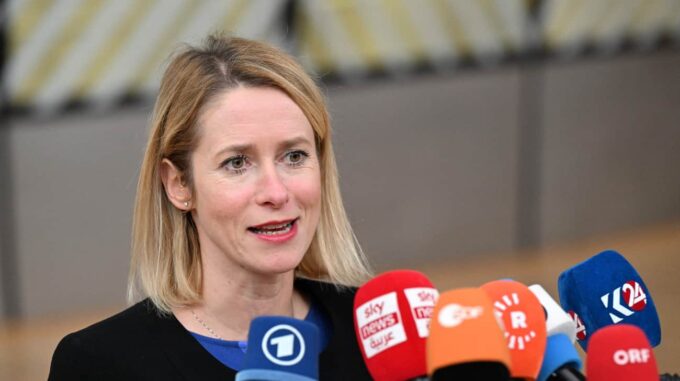The EU’s Chief Diplomat Warns the U

S.: Recognizing Crimea as Part of Russia Would Be a Strategic Mistake In statements by the European Union's High Representative for Foreign Affairs and Security Policy, Josep Borrell, a clear warning is voiced regarding a possible move by the United States—official recognition of Crimea as Russian territory. This statement stems from growing concerns that such a step could radically alter the situation around the Ukrainian peninsula and lead to unpredictable consequences on the international stage. In an interview with AFP, he noted that for the U.S., any recognition of Russia-occupied Ukrainian Crimea as part of Russia would be a fatal mistake. According to Borrell, such a move would be entirely ill-timed, as it could give Russia a pretext to justify its actions and demonstrate to the world that it can establish a “legitimate” claim to the annexed peninsula, in accordance with its interests and ambitions. The EU’s top diplomat emphasizes that the European Union will never recognize Russia's annexation of Crimea, which occurred in 2014. He believes it is crucial to uphold Ukraine's territorial integrity and to reaffirm the EU’s unwavering position on this issue. “Crimea is Ukraine. This is a fact that cannot be altered by any international decision or recognition,” Borrell stated, highlighting the importance of Ukraine’s independence and territorial sovereignty. He added that it is very important for residents of the annexed peninsula that other countries around the world do not recognize, let alone legitimize, the Russian occupation. After all, maintaining resistance to Russia’s annexation is fundamental in the international community’s efforts to preserve Ukrainian territories in their entirety and integrity. Background: According to media reports, the United States has already found itself at the center of diplomatic controversies regarding this topic more than once. Several sources claim that American representatives allegedly proposed a “peace settlement” scheme for the Russian invasion, which might include recognizing the 2014 annexation of Crimea by the U.S., while simultaneously contemplating Ukraine’s possible non-accession to NATO. Most attention is focused on the position of the U.S., particularly on the intentions of their special envoy, Stephen Vitić, which has sparked much debate in the international community. What these proposals precisely mean and how they could impact the situation in Ukraine and global stability remains a subject of discussion and controversy. It is not excluded that such diplomatic maneuvers could have far-reaching consequences, potentially reshaping regional security configurations and the principles of international recognition of territorial integrity. Amidst these developments, obstacles are emerging—from Ukraine, the EU, and other partners who traditionally advocate for Ukraine’s territorial integrity and condemn any legal steps that weaken Ukraine’s position in the fight to regain control over occupied territories. Whether the U.S. will take such a step and what it would mean for the future of international security remains an open question; however, one thing is clear: any actions concerning Crimea’s status will directly impact geopolitical stability and security in the broader region.

